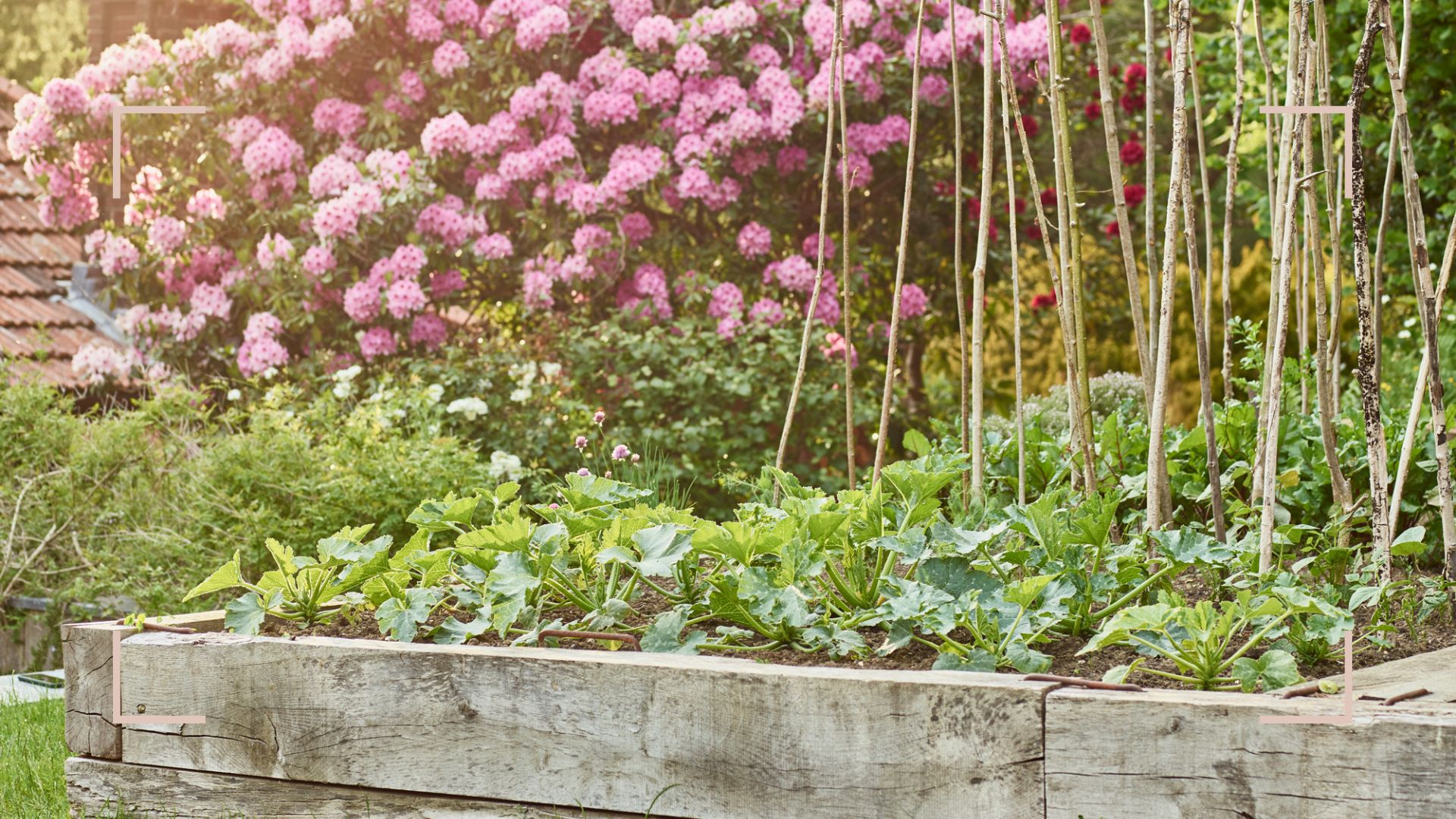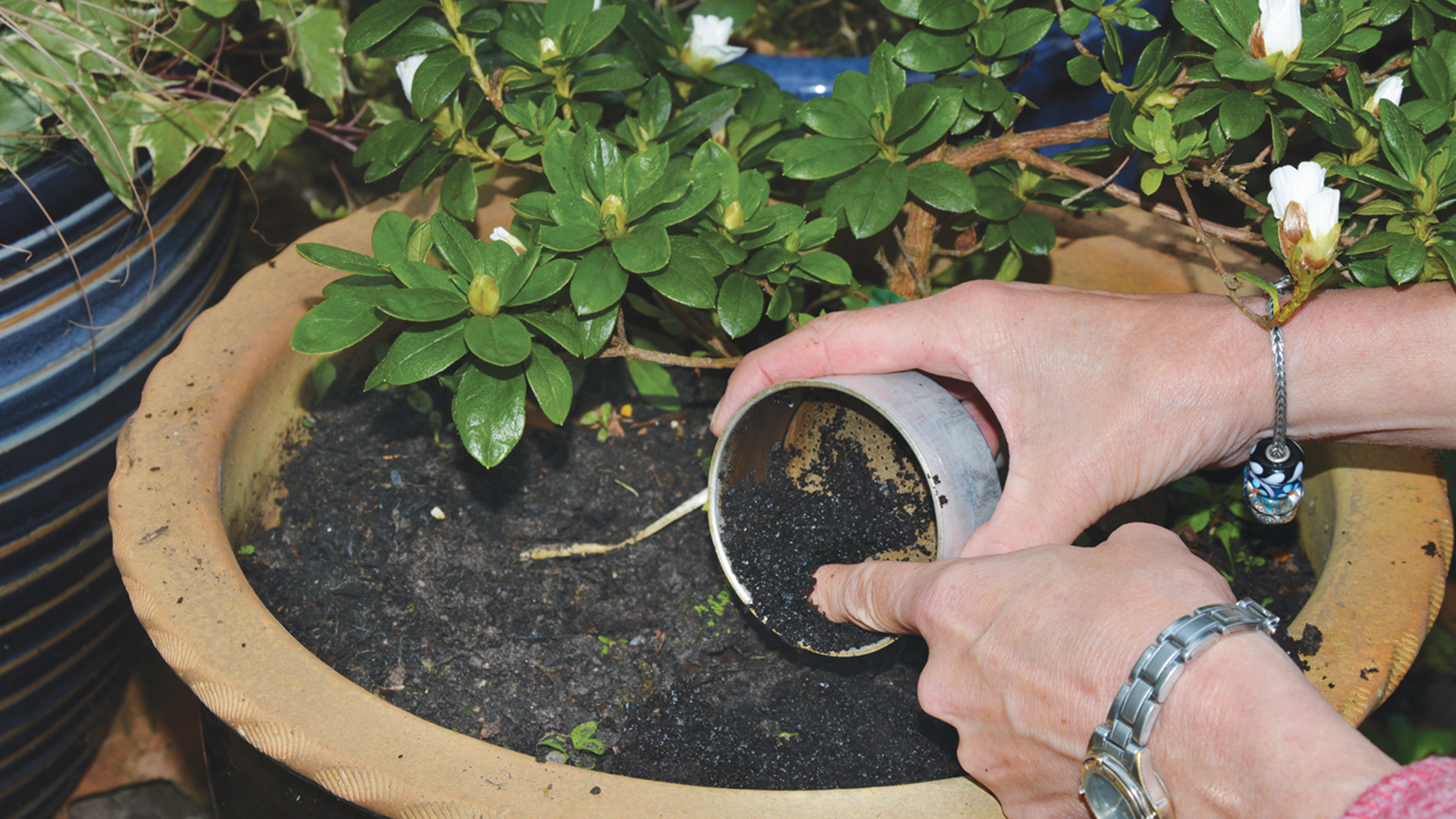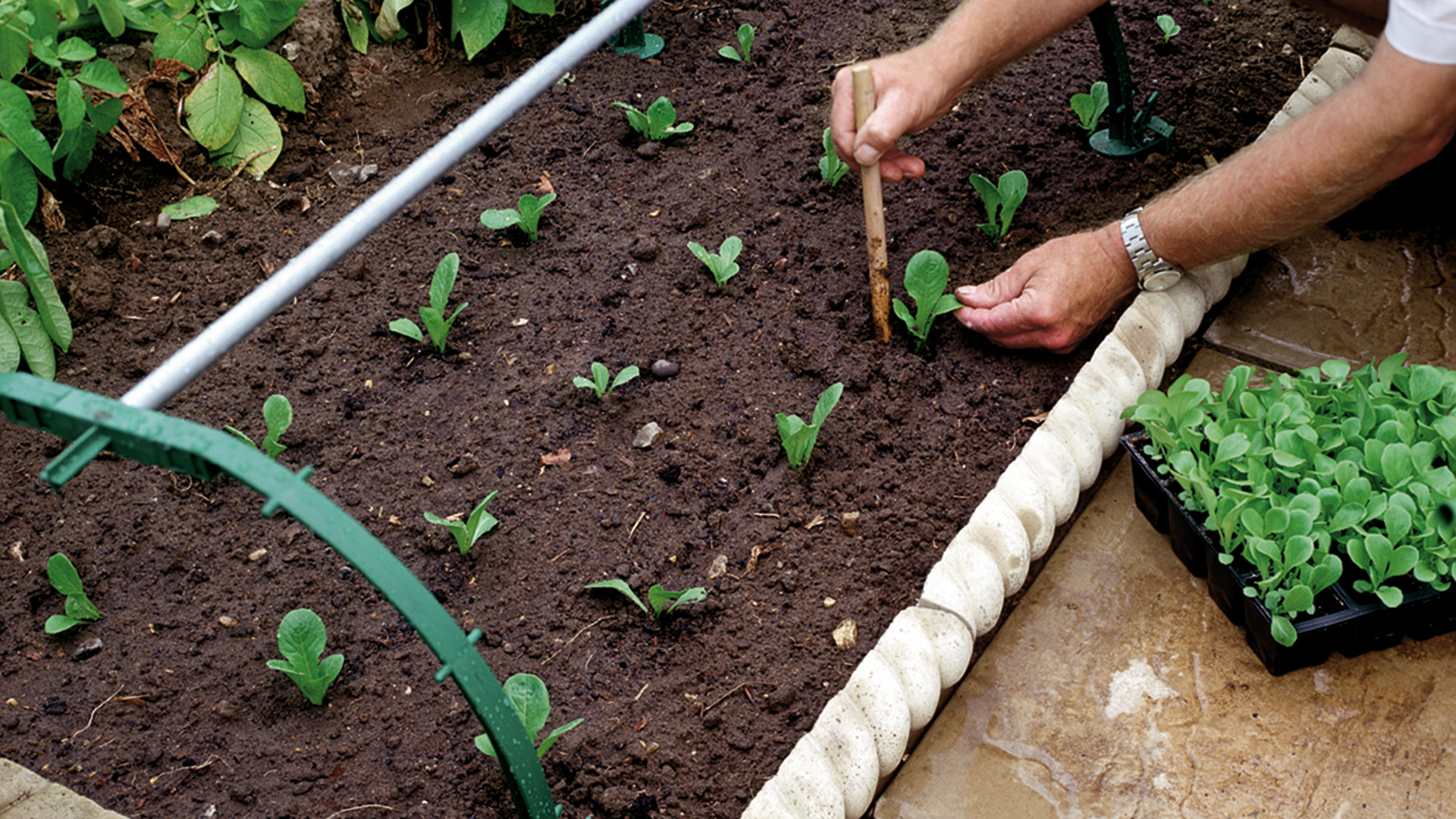Are coffee grounds good for the garden? The pros and cons
Discover how your post-coffee hit can prove useful, but also where it can be a hindrance


If you are new to trying sustainable gardening ideas and asking yourself if coffee grounds are good for the garden, you're in luck because we have the answers.
The good news, in short, is that this by-product of our daily morning coffees can be put to good use in our green spaces. However, there are some caveats because coffee grounds are not ideal for all gardening tasks.
Without further ado, let's explore the best ways to use coffee grounds in the garden and the areas to approach with more caution.
Are coffee grounds good for the garden?
In general, yes, coffee grounds are good for the garden. "Over the years, gardeners have found lots of ways in which coffee grounds can be used in the garden to benefit plants," explains gardening expert Lucie Bradley from Easy Garden Irrigation.
"Although we know that plants generally don’t like caffeine, with it inhibiting growth and root development and being poisonous to plants in high levels, most of the caffeine in coffee is transferred to your drink when it is made. This means that used coffee grounds are safe around plants, even those from strong coffee, are OK as long as they have been used."
"Used coffee grounds can be a valuable addition to your garden in several ways," suggests Kate Cotterill, co-founder of heirloom seed company She Grows Veg. "When added to compost, they contribute nitrogen, an essential nutrient that helps break down organic material and enriches the final compost," Kate explains.
"Coffee grounds can improve soil structure and slightly acidify the soil, benefiting acid-loving vegetables like tomatoes, carrots, and radishes."
Sign up to our free daily email for the latest royal and entertainment news, interesting opinion, expert advice on styling and beauty trends, and no-nonsense guides to the health and wellness questions you want answered.

Ideally, you should let the coffee grounds dry out before using them, before adding them to a compost pile or sprinkling them directly on the soil. Lucie suggests: "Crumble them up or put them through a coarse sieve so you don’t have lumps of coffee grounds, which would take longer to break down."
How are coffee grounds good for the garden?
- Improving soil conditions: Used coffee grounds can benefit your garden by adding nutrients such as nitrogen. "For plants which like a slightly acidic soil type, you can give the ground where you will be planting a nutrient boost and help increase acidity slightly by adding coffee grounds," Lucie suggests. "You just need to be aware that they are only very slightly acidic, so always test the pH of the soil after treatment, as you may need to enhance it using other methods if it is too alkaline."
- Adding nutrients: Regarding improving the nutrients in the soil, Lucie confirms, "Coffee grounds are only about 2% nitrogen, as well as containing phosphorus and potassium, and these nutrients are only slowly released into the soil over weeks or months. So, for greedy plants, coffee grounds should only be used to supplement other forms of fertiliser."
- Beneficial compost ingredient: "They’re valuable in compost, where they act as a 'green' material and attract worms, boosting soil health," explains professional gardener Jane Dobbs, at Allans' Gardeners. If you are adding coffee grounds to your compost heap, Lucie suggests: "adding the filter paper as well or the filter pods, as long as you tear them up before adding them."
- Pest repellent: "Additionally, sprinkling coffee grounds directly around plants can also help deter slugs and snails, " says Kate. "This is due to their texture and caffeine content, which these pests dislike." I regularly gift a large tub of my used coffee grounds to my Dad to help naturally deter slugs from eating their way through his prized hostas.

Gardening is Jane's passion, having built and maintained stunning outdoor spaces for over a decade. Taking care of all the garden projects at Allans' Gardeners is her responsibility as lead gardener. A wide range of horticultural practices come into play in Jane's work, from landscape design to plant and lawn care.
When are coffee grounds not good for the garden?
Similar to using coffee grounds for houseplants, the secret is using the ingredients in moderation and only in the right places.
"As long as they are used carefully and you check which plants do and don't like coffee grounds, then you should be able to aid plant growth using something that you would normally throw away," says Lucie.
- Clumping causes water retention: As anyone who uses one of the best coffee machines will attest, coffee grounds can become very compacted. For this reason, many gardeners warn that coffee grounds can create a water-restricting barrier, which could potentially cause your plants to wilt and die. To prevent clumping, it is best to add the grounds to a layer of organic mulch, such as wood chips or a similar natural material, which breaks them up and prevents them from sticking together, thereby restricting the flow of water.
- Not all plants welcome the acidity: "Just as plants which like acidic soil will benefit from the addition of coffee grounds, which is why coffee grounds are said to change the colour of hydrangeas, those plants which prefer alkaline soil will not thank you for adding coffee grounds to their soil," says Lucie. "Plants which fall into this category include achillea, lavender, leeks, lilacs, rosemary, sunflowers, and thyme."
- They stifle seedlings: "They’re especially good for leafy greens and acid-loving plants, but should be avoided around seeds, as too much can inhibit seedling growth," Jane warns.

- Potentially toxic to pets: When using coffee grounds in your garden, air on the side of caution if you have pets, because caffeine falls into the category of ingredients that are toxic to cats and dogs. According to the PDSA's list of poisonous hazards for your pets, caffeine can "affect the heart and blood pressure, and may cause seizures." However, as Lucie explained earlier, most of the caffeine in coffee is transferred to your drink when it is made, so it's not a highly concentrated dose, but still important to mention for those who would still rather avoid it altogether.
In conclusion, it's always best to mix coffee grounds into compost or blend with other organic matter rather than applying them directly to the garden.
For more fabulous ways to recycle household waste in your garden, to keep costs and waste levels down, why not try using teabags in your garden? The tannins can provide valuable soil nutrients that your leafy friends will appreciate when added to the soil. How about using orange peels in your garden to create a natural pest deterrent?

Tamara is a highly experienced homes and interiors journalist with a career spanning over 23 years. Now the Lifestyle Editor of womanandhome.com, she previously spent 19 years working with the style teams at Country Homes & Interiors and Ideal Home. With these award-winning interior teams, she gained a wealth of knowledge and honed her skills and passion for styling and writing about every aspect of lifestyle and interiors.
A true homes and interiors expert, Tamara has been an ambassador for leading interior brands on multiple occasions, including appearing on Matalan’s The Show and presenting at top interior trend forecasting events such as the Autumn Fair and Spring Fair.
You must confirm your public display name before commenting
Please logout and then login again, you will then be prompted to enter your display name.